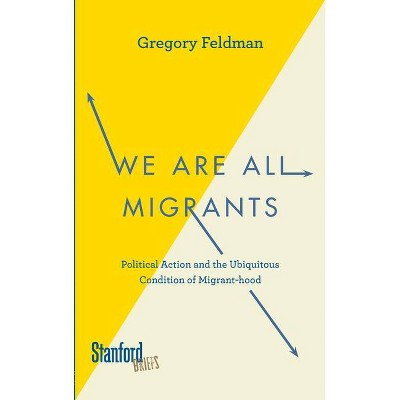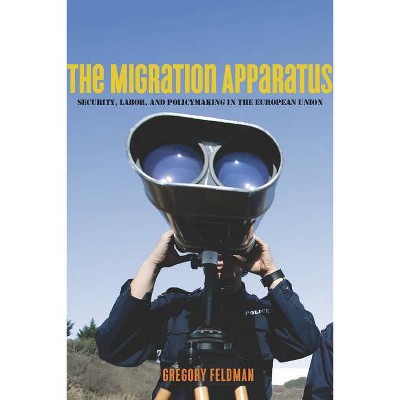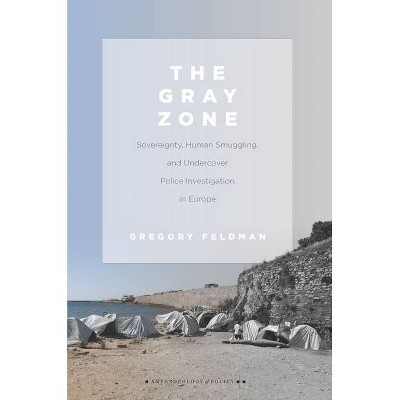We Are All Migrants - by Gregory Feldman (Paperback)

Similar Products
Products of same category from the store
AllProduct info
<p/><br></br><p><b> Book Synopsis </b></p></br></br>Now more than ever, questions of citizenship, migration, and political action dominate public debate. In this powerful and polemical book, Gregory Feldman argues that <i>We Are All Migrants</i>. By challenging the division between those considered "citizens" and "migrants," Feldman shows that both subjects confront disempowerment, uncertainty, and atomization inseparable from the rise of mass society, the isolation of the laboring individual, and the global proliferation of rationalized practices of security and production. Yet, this very atomization-the ubiquitous condition of migrant-hood-pushes the individual to ask an existential and profoundly political question: "do I matter in this world?" Feldman argues that for particular individuals to answer this question affirmatively, they must be empowered to jointly constitute the places they inhabit with others. Feldman ultimately argues that to overcome the condition of migrant-hood, people must be empowered to constitute their own sovereign spaces from their particular standpoints. Rather than base these spaces on categorical types of people, these spaces emerge only as particular people present themselves to each other while questioning how they should inhabit it.<p/><br></br><p><b> Review Quotes </b></p></br></br><br><i>We Are All Migrants</i> is an important statement that is both provocative and sensible, a rare combination. Feldman offers a handsome critique of efforts to speak for others, and his work finds good company alongside boundary-crossing essays by Giorgio Agamben and Julia Kristeva.--Mark Maguire "Maynooth University"<br><br>Feldman's book makes an important contribution to theorizing and advancing what a truly universal and solidaristic (rather than hegemonic) revolutionary politics might look like, by drawing important conceptual and political connections between phenomena that are all too frequently treated in isolation: global migration and growing disillusionment with liberal party politics <i>We Are All Migrants</i> offers an important counter-narrative to the endlessly proliferating positivist policy responses to 'the problem of migration'.--Edward Wilcox "<i>European Journal of Cultural and Political Sociology</i>"<br><br>Gregory Feldman's <i>We Are All Migrants</i> offers an insightful and pressing polemic examining the uncertainty and atomisation which, he argues, characterise the precarious position of both citizens and migrants in neoliberal capitalism. For a book of 117 pages, the text is incredibly rich, drawing widely on critical philosophers and literary figures.--Hamish Reid "<i>Political Studies Review</i>"<br><br>In seeking the consequences of calling specific groups of people 'migrants, ' Feldman turns a straightforwardly anthropological question about identity into a searchlight on contemporary politics. His compelling book asks us to pay close attention to what smug politicians perpetrate in the name of high principles and, yes, of good intentions. After reading <i>We Are All Migrants, no one will have an excuse for letting them get away with it.--Michael Herzfeld "Harvard University"<br><br>This book provides for a compelling read, and is a welcome addition to the canon on citizenship, migration and globalisation processes that create and sustain distance between individuals and consequential social space. It also serves as a poignant and necessary reminder that the dividing line between migrant and citizen has become an increasingly blurred one.--Octavius Pinkard "<i>Social Anthropology</i>"<br><p/><br></br><p><b> About the Author </b></p></br></br>Gregory Feldman teaches at the School for International Studies at Simon Fraser University. He is the author of <i>The Migration Apparatus: Security, Labor, and Policymaking in the European Union</i> (2011).
Price History
Price Archive shows prices from various stores, lets you see history and find the cheapest. There is no actual sale on the website. For all support, inquiry and suggestion messagescommunication@pricearchive.us




















